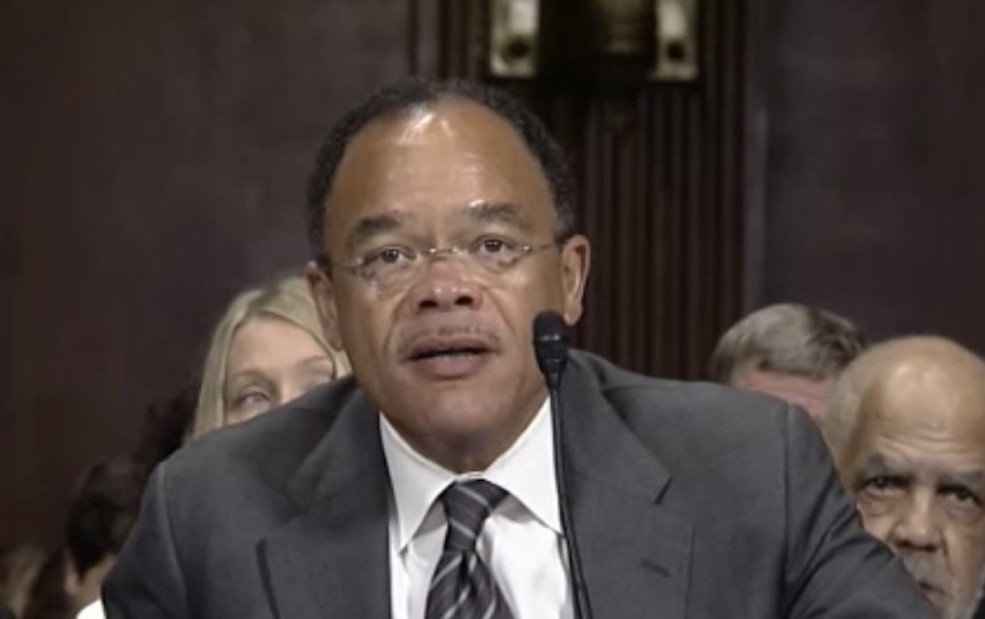Chief US District Judge Waverly D. Crenshaw, Jr., ruled on March 29 that Tennessee and Knox County officials violated the Equal Protection rights of a transgender boy who is a student at Farragut High School in Knoxville by barring him from participating on the school’s boys’ golf team. Plaintiff L.E. competed as a girl on his middle school golf team but sought to compete as a boy in high school as his gender transition progressed.
Prior to March 26, 2021, when Tennessee Governor Bill Lee signed the “Gender in Athletics Law,” L.E. would have been allowed to try out for the boys’ golf team. The Tennessee Secondary School Athletic Association (TSSAA) and Middle School Athletic Association (TMSAA) had adopted a policy aimed at allowing “all students to have the opportunity to participate in TSSAA/TMSAA activities in a manner consistent with their gender identity, irrespective of the gender listed on a student’s records.”
The Gender in Athletics Law was passed as part of the wave of laws enacted by Republican-controlled state legislatures in recent years intended to prohibit transgender athletes from competing consistent with their gender identities. Shortly after passing this law, the legislature passed a second law authorizing withholding of state funds from school districts that failed to adjust their policies to comply with the new law, which provides that a student’s sex for purposes of athletic competition shall be the sex identified on their original birth certificate. The Knox County Board of Education changed its rules on athletic participation to comply with the state law and avoid financial penalties.
This change in the law occurred just as L.E. was graduating from middle school to high school. Although he had competed on the girls’ golf team in middle school, he was increasingly uncomfortable in doing this as he began to transition. He had changed his legal name, dressed and groomed as a boy, and after being diagnosed with gender dysphoria had begun taking puberty-blocking medication to avoid developing secondary female sex characteristics. At the time, he was planning to consult an endocrinologist to begin cross-sex hormones to masculinize his body. At school, everybody was treating him as a boy and he was using the boys’ restrooms. He strongly felt that he should not be the only boy playing on the girls’ golf team, which is what he would have to do under the new state law and school board policies if he wanted to compete.
The boys’ golf team at Farragut High was a big deal with a winning record in state competition, and getting on the team was very competitive, requiring trying out and achieving a score under 90 strokes on an 18-hole walking course. L.E. had not been among the best golfers on the women’s team in middle school, and it was uncertain that he would make the boys’ team if he were allowed to try out. Because of the passage of the new law, he didn’t even bother to do so, even though he was offered an opportunity to try out that would be largely symbolic, since the Knox County Board of Education had already changed its rules to comply with the new state law so he would not be able to compete even if he passed the tryout.
Instead, L.E. filed a lawsuit in federal court, represented by the major national law firm of Wilmer, Cutler & Pickering Hale & Dorr, LLP, as cooperating attorneys with the ACLU and Lambda Legal, claiming that the new policy as applied to him violated his rights under the 14th Amendment’s Equal Protection Clause and Title IX of the Education Amendments of 1972, a law that bans discrimination on the basis of sex by educational institutions. L.E. sought a permanent injunction that would allow him to try out for the boys’ team and to compete as a member of the boys’ team if he passed the tryout. He was not asking the court to declare the law unconstitutional on its face, but rather unconstitutional (and illegal under Title IX) as applied to him.
The court delayed ruling on motions for summary judgment by all parties while the Sixth Circuit Court of Appeals was deliberating on cases from Tennessee and Kentucky challenging state laws banning gender-affirming care for transgender minors, anticipating that a ruling in that case by the federal appeals court that hears appeals from Tennessee could affect the legal analysis of L.E.’s claims. Judge Crenshaw called for briefing from the parties after the Sixth Circuit case was decided, and then produced this decision on March 29, in time for L.E. to try out for the boys’ golf team for his senior year at Farragut.
The Sixth Circuit reversed preliminary injunctions that had been issued by the district courts in Tennessee and Kentucky blocking the state laws, and petitions for review were pending at the end of April before the Supreme Court by the plaintiffs in those cases. Judge Crenshaw decided that the Sixth Circuit’s decision was basically irrelevant to L.E.’s equal protection claim, but that the Sixth Circuit’s treatment of the Supreme Court’s precedent in Bostock v. Clayton County, which L.E. relied upon in his Title IX claim, required the district court to rule against L.E. on that claim. According to the Sixth Circuit, Bostock’s interpretation of Title VII of the Civil Rights Act of 1964 to forbid employment discrimination because of transgender status was not applicable to Title IX of the Education Amendments of 1972 and thus not applicable to the anti-discrimination provision in the Affordable Care Act — which incorporates Title IX by reference — that the plaintiffs were relying on in their challenges to the state bans on gender-affirming care for minors.
Judge Crenshaw ruled in favor of L.E. on the equal protection claim. Even though the Gender in Athletics Law does not mention gender identity or transgender status, its adoption of a definition of sex for purposes of athletic competition clearly targets transgender students for discriminatory treatment, Judge Crenshaw concluded, and in common with many federal courts that have been dealing with these athletic competition cases, he concluded that the application of the law to L.E. was subject to heightened scrutiny. This puts the burden on the government to prove that the law substantially advances important government interests.
In this case, the Tennessee legislature included a section in the law spelling out its four purposes. Judge Crenshaw found that two of the articulated purposes were clearly insufficient to justify the discrimination resulting from the law — adopting a definition to “clarify” the meaning of “sex” for school athletics, and articulating the government’s view in statutory form as “government speech” — while the other two purposes plainly did not apply to transgender boys, since they focused on transgender girls who were identified as boys on their birth certificates and thus raised concerns about unfair competition with cisgender girls and safety. Letting a transgender boy try out for a boys’ golf team has no relationship to protecting cisgender girls from unfair competition by transgender girls, quite obviously, and golf is not a contact sport, so the safety concerns the legislature articulated were irrelevant to L.E.’s case.
Having concluded that the law and the school district’s policy violates L.E.’s equal protection rights, the court ordered that the defendants are “hereby enjoined from enforcing against L.E. the Gender in Athletics Law or the revised I-171 Policy to preclude him from the opportunity to participate in boys’ interscholastic golf in Tennessee public schools.” If the defendants appeal this ruling to the Sixth Circuit, it is possible that Judge Crenshaw’s order will be stayed pending appeal and L.E. may run out of time to try out for the boys’ golf team in his senior year, making his victory largely symbolic. But perhaps good sense will prevail and, in light of the narrowness of the court’s ruling, Tennessee can live with it and not appeal.
Judge Crenshaw was appointed by President Barack Obama in 2016 and won unanimous confirmation from the U.S. Senate. He was only the second African American to serve as a federal district judge in Tennessee and is current the Chief Judge of the Middle District of Tennessee.





































